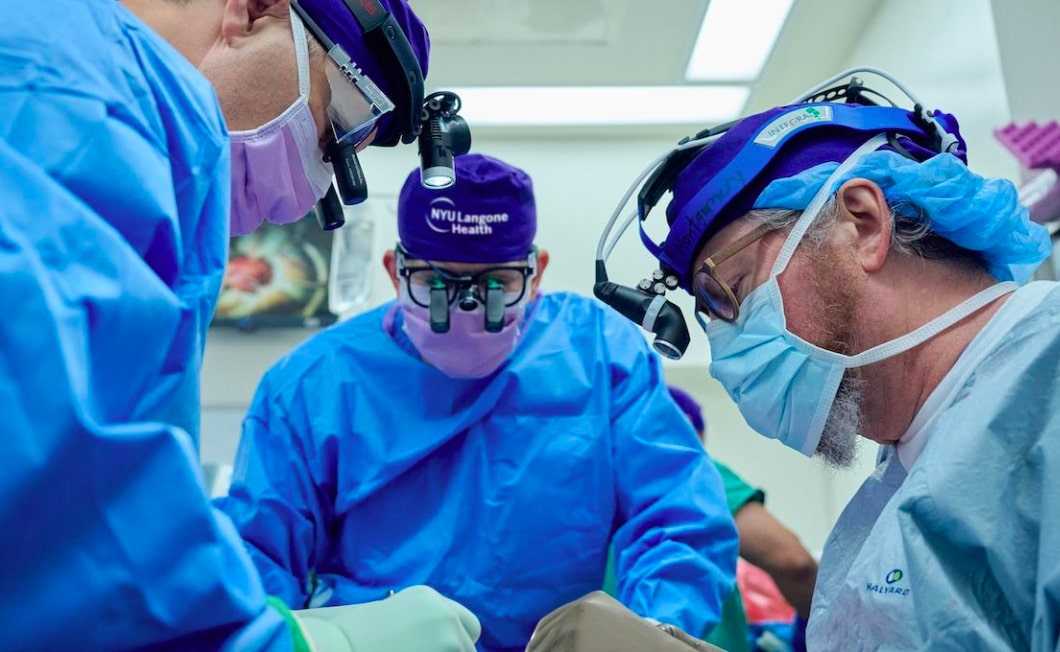That'll do, pig

Image: Joe Carrotta/NYU Langone Transplant Institute
Yesterday, two separate teams of US scientists announced breakthroughs in their respective attempts to create genetically modified pig kidneys that function normally when transplanted into human patients.
🧑🔬 Here’s what happened: In a peer-reviewed research letter, surgeons from the University of Alabama at Birmingham say a pair of modified pig kidneys transplanted into a brain-dead human patient performed the organ’s two most essential functions – filtering blood and creating urine – for a full week, which the authors describe as a first-of-its-kind occurrence.
Around the same time the UAB letter was published, surgeons at NYU announced one of their modified pig kidneys has been working in a brain-dead human patient for 32 days and counting, the longest period for such an experiment on record (though the results have yet to be peer-reviewed).
- In both breakthroughs, the scientists involved say more work is needed to conclusively establish whether pig kidneys can be safely used for human transplants.
- Their research comes more than a year after the first person to receive a genetically modified pig’s heart lived for two months following the groundbreaking transplant.
🇺🇸 Zoom out: Roughly 106,000 Americans are currently on the organ transplant list, and nearly 90% of them need a kidney. An estimated 13 people in the US die each day while waiting for a life-saving kidney transplant.
Share this!
Recent Science & Emerging Tech stories

Science & Emerging Tech
| August 10, 2023Superconductor breakthrough or nah? An electric claim has energized the scientific community
📝⚡ Late last month, a team of Korean scientists published two preprint studies claiming to have developed LK-99, a material that can act as a superconductor at room temperature and ambient pressure – one of the holy grails of physics. This kicked off a race to reproduce the results.

Science & Emerging Tech
| August 8, 2023There’s been another nuclear fusion breakthrough
⚛️⚡ On July 30, scientists at the US Department of Energy achieved a net energy gain in a nuclear fusion reaction – the holy grail of energy production – for the second time in history.

Science & Emerging Tech
| July 25, 2023The global space economy is growing like bathtub animals
🚀📈 Per a new report from the Space Foundation, a leading space nonprofit, the global space economy is expected to increase 41% over the next five years to reach ~$770 billion.
You've made it this far...
Let's make our relationship official, no 💍 or elaborate proposal required. Learn and stay entertained, for free.👇
All of our news is 100% free and you can unsubscribe anytime; the quiz takes ~10 seconds to complete